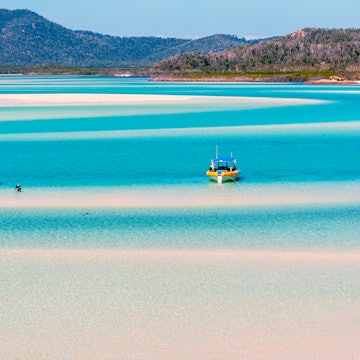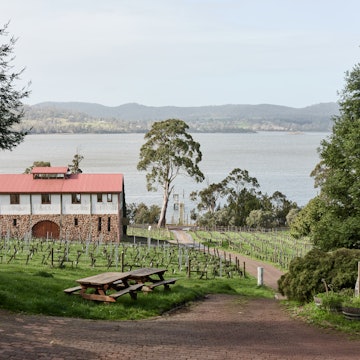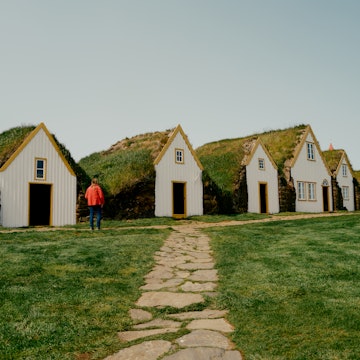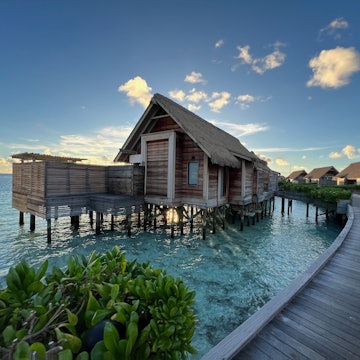
Guide to tipping in Australia, New Zealand and the South Pacific


Unless you're offered table service, tipping for food or drinks is not the norm in hospitality venues. Isabella Moore for Lonely Planet
It's a convoluted question wherever you're traveling: how much should you tip, and how? Sometimes, it may be a matter of rounding up a fare; in other cases, a substantial tip to show your appreciation for excellent service might be appropriate. The context is key.
In Australia, New Zealand and the South Pacific, it's especially confusing because tipping for many services hasn't been practiced at all until recently. Even then, it's still not necessarily the norm in many situations. Here's how to navigate the varying tipping cultures across Oceania.

Do I need to tip at restaurants, pubs and bars?
Historically, leaving gratuities in Australia and New Zealand hasn't been standard practice, as staff in the hospitality industry are generally assumed to earn a decent wage. But during the Covid-19 pandemic, tipping culture began to change, in part due to cost of living increases.
Since roughly 2021, tipping has become more commonplace, particularly in urban centers like Melbourne. However, the act hasn't been widely accepted across the country, and it can be a bit political. Many Kiwis and Australians believe it's the responsibility of the government to set minimum wages that keep pace with inflation and for employers to pay workers a fair wage. Tipping can be perceived as a threat to workers' rights and is considered by some to be "un-Australia" or "un-Kiwi." It's for these reasons that you might encounter or hear stories of servers steadfastly refusing tips.
For travelers, this makes tipping culture (or the lack thereof) in Australia and NZ tricky to navigate. A good rule of thumb: if you're in a regional area or eating in a pub or cafe where you order from the counter, it's not necessary to tip. But if you're dining in a restaurant in a major city that offers full table service, a tip of 10% to 15% is appreciated if you feel the service is deserving.
Wherever you dine, remember that the menu prices factor in both tax and tip, with service surcharges of up to 15% automatically added to your bill on weekends and holidays. This surcharge directly correlates with a higher wage that's paid to staff during hours worked outside the standard working week (sometimes called penalty rates).
In countries of the South Pacific, tipping in restaurants and bars is even less of a concern, as the practice is not part of the Indigenous cultures. That said, if you visit a particularly swanky restaurant and have your mind blown with incredible food and service, do feel free to add on 10% to the overall bill (even though it won't be expected).

Am I expected to tip hotel staff?
It is not standard practice to tip hotel cleaning staff or porters in Australia or New Zealand. Again, if you feel that the service was truly exemplary, you can leave around $5 (in either Australian or NZ dollars) and $5 a day for housekeeping staff.
The South Pacific Islands take a more hospitable stance – when you initially check into your hotel, you are considered an honored guest, and if you stay a second time, family.
Suffice it to say, neither of these are expected to tip. If you do feel you want to reward particular staff members financially, however, do it face-to-face. Otherwise, it won't be accepted. This is particularly true of housekeeping staff.

Is tipping our tour guide expected?
It is optional to tip local tour guides. It's more common to tip tour guides who work for international inbound tour operators, mainly because they're working with international travelers who typically tip.
Tour guides and private drivers in Australia and New Zealand should be tipped between $20 and $50 (in the local currency) per day, while bus tour operators can be given around a $5 to $10 tip for a day's work. It's important to note that in Australia and New Zealand, it's typical to have a "driver-guide" model, where the bus driver is doing both the driving and the guiding, therefore warranting a larger tip.
If you've been given a particularly good tour guide or private driver in one of the South Pacific islands, showing your appreciation with a tip is acceptable but not expected. The amount is up to you, but always tip in local currency, as US dollars are hard to trade and impact the local economy.
How much should I tip my taxi driver?
Similarly, taxi drivers in Australia, New Zealand and the South Pacific islands won't expect you to tip at the end of a taxi ride, but rounding up the fare to the nearest $1 to $5 is common practice.
If you are traveling by a rideshare app (or ordering food from an app-based food delivery service), giving a decent tip is more common, in recognition that workers in the gig economy are less likely to be earning minimum wage.
Take your New Zealand trip with Lonely Planet Journeys
Time to book that trip to New Zealand
Lonely Planet Journeys takes you there with fully customizable trips to top destinations–all crafted by our local experts.
























